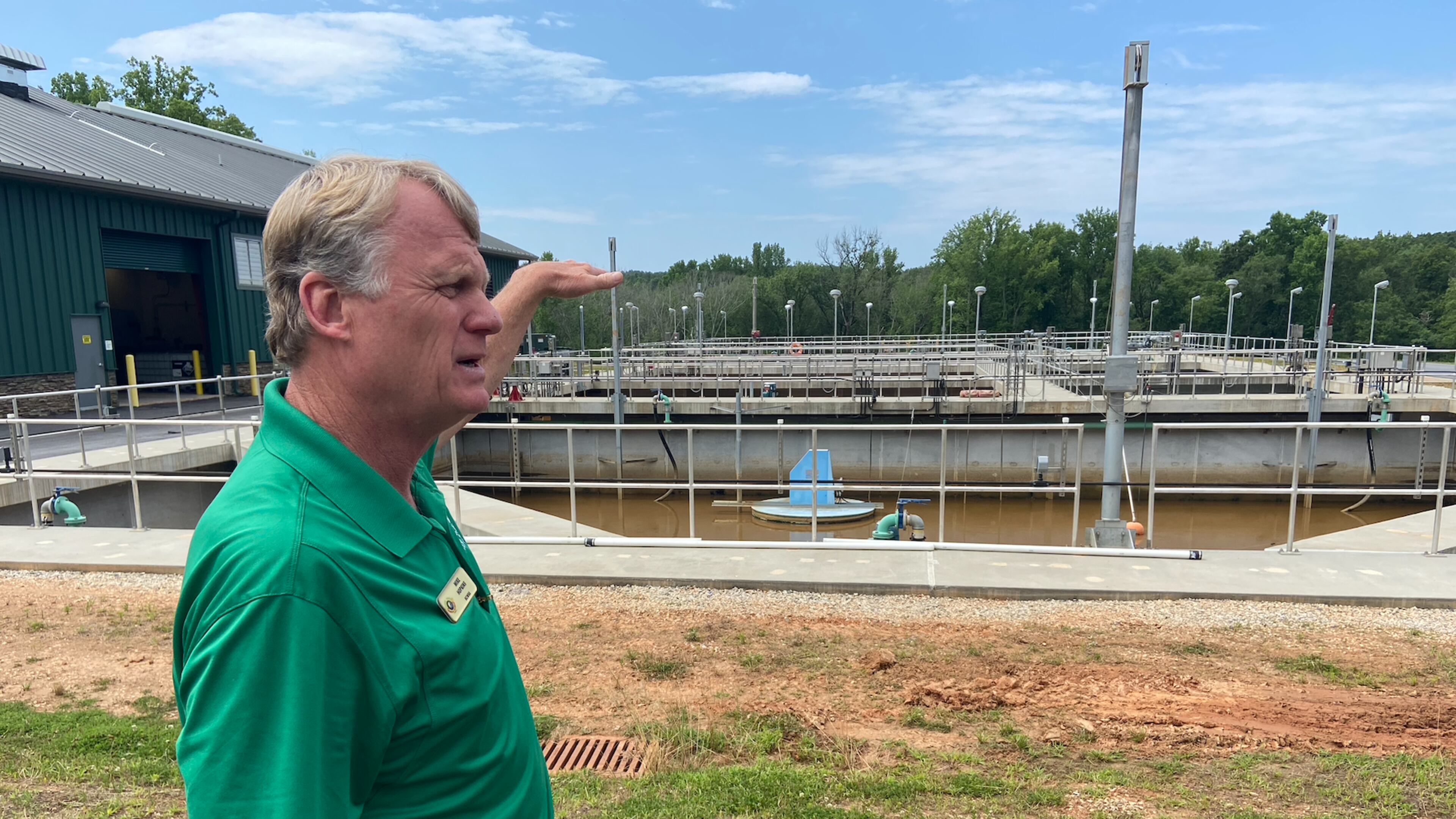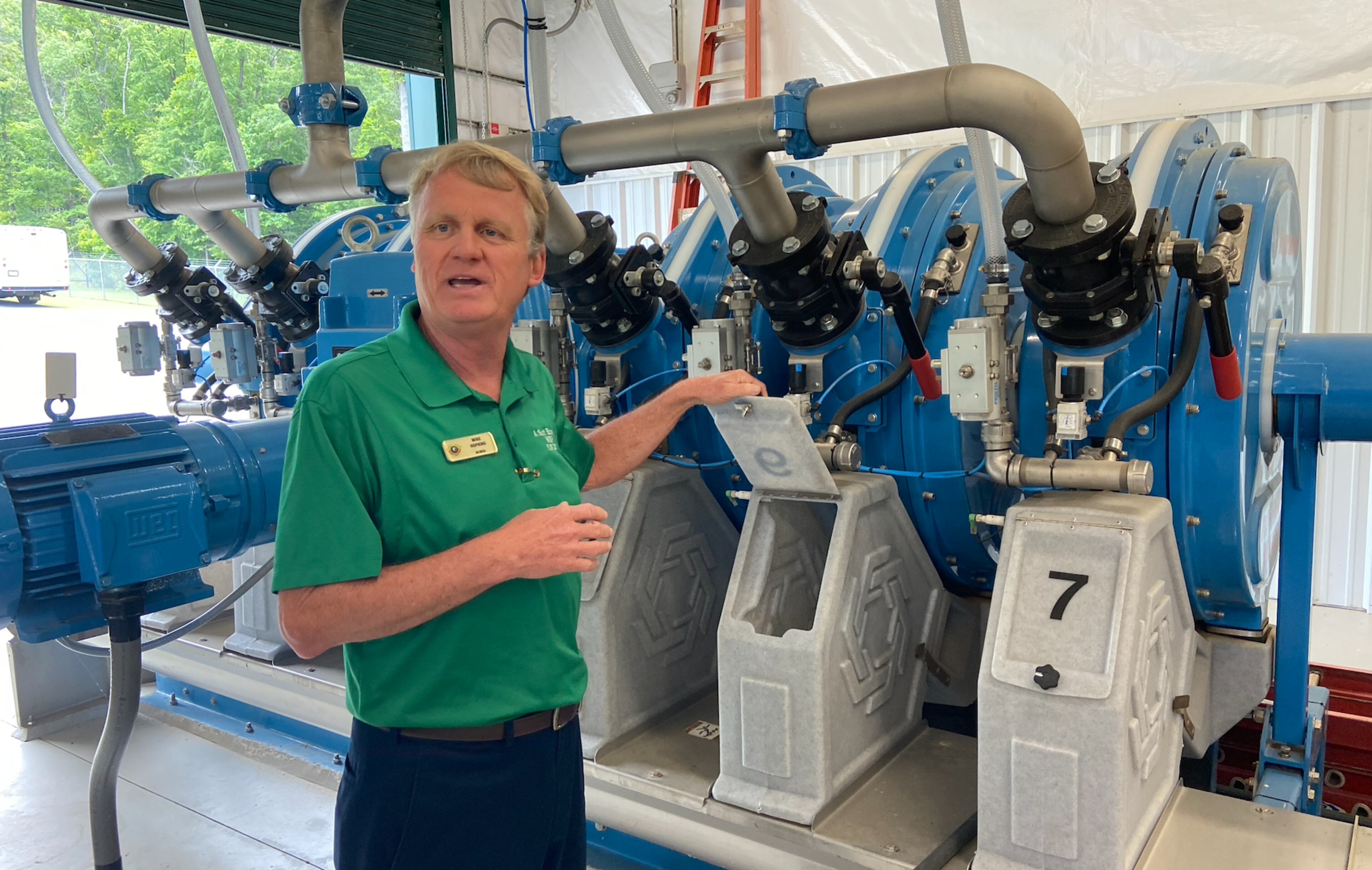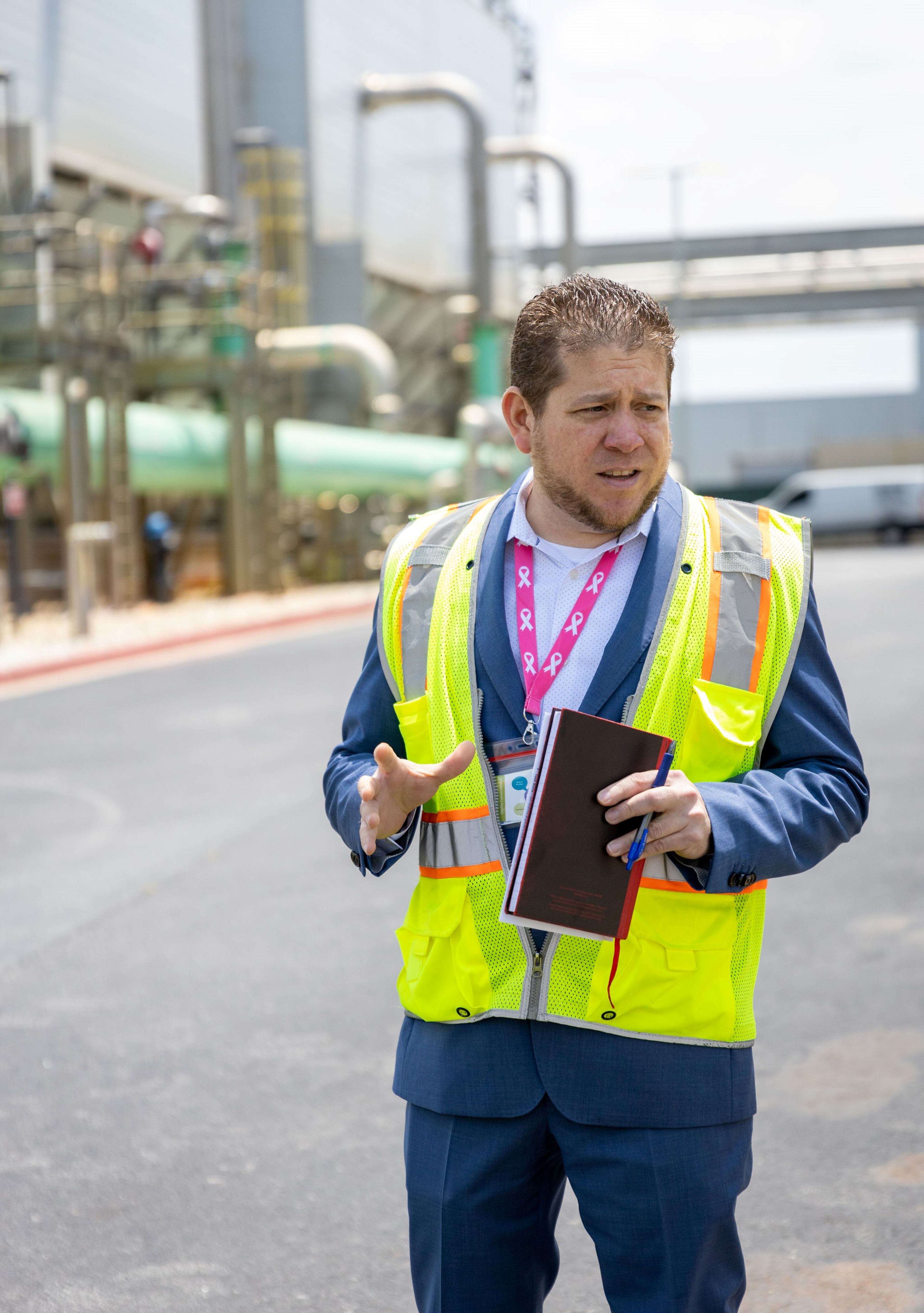$91M in grants to help Newton County prepare for Rivian’s water needs

Newton County is using more than $90 million in federal grants to expand its water system to meet the growing needs of its industrial sector and its anticipated largest factory: Rivian’s $5 billion electric vehicle plant.
In addition to a new water treatment facility, the funds will bolster the county’s existing water mains and pumps. Mike Hopkins, director of the Newton County Water and Sewerage Authority, said he expects to break ground in the fall on the new facility. It will have the capability to daily reclaim 5.5 million gallons of wastewater for industrial uses, like cooling and fire treatment — not for drinking.
It’s one of the largest infrastructure projects underway to pave the way for Rivian’s future factory — one of the state’s largest economic development projects. It is expected to employ 7,500 workers and vastly expand the area’s industrial corridor.
“I look forward to Rivian, and I think it’s going to add a lot to our area and our community,” Hopkins told The Atlanta Journal-Constitution. “We want to make sure that they don’t have to worry about water.”

The project also highlights the transformative effects industry can have on rural areas.
In 1998, exit 101 along I-20 roughly an hour east of Atlanta, had no running water or sewer system. But fast-forward 25 years and the area is now home to Stanton Springs, an industrial park anchored by a Meta data center and a 1.1-million-square-foot plasma treatment center by Takeda. Rivian is expected to join the fray and begin manufacturing EVs by 2025.
Because of the glut of growth, Newton and its county seat of Covington were awarded $212 million in American Rescue Plan Act (ARPA) grants in February for water projects. Gov. Brian Kemp’s office helped allocate the funds.
About $91 million was earmarked for the Newton County Water and Sewerage Authority. The rest is going toward expanding the county’s drinking water reservoir and city water infrastructure. Hopkins said Newton received an additional $21 million last week to further allocate to water projects.
“The largest grant that I’ve ever received in my 27 years was President (Barack) Obama gave us $900,000 for a tank with ARPA money,” Hopkins said. “So this is beyond belief from what we’ve been given. I can’t thank the governor and the state enough. We want to make sure that we build something worthy of their belief in us.”
Water reclamation plants take in used water and waste to filter, treat and sanitize for non-potable uses. Mario Martinez, Takeda’s head of utilities engineering, said large industrial facilities, such as the factories at Stanton Springs, need vast amounts of water.
“It’s a key component for manufacturing and for cleaning,” he said, adding that Takeda aims to reduce its water usage by 5% from 2019 to 2025. Takeda also plans to build a $10.3 million onsite recycling center to advance toward a zero-waste-to-landfill goal by 2030.

Rodney Hadley, a watershed plant operator and supervisor in Newton, said he’s seen the area rapidly change since he grew up in the region.
“When you see things start to grow and start to blossom, it makes you feel good,” he said. “We’re not overly saturated. I believe that we’re growing in the right way.”
Some of his neighbors disagree. Rivian’s proposed factory has received loud pushback from Social Circle and Rutledge residents who live near the 2,000-acre site. The opponents have prompted multiple lawsuits that are working their way through the courts over zoning, environmental and property tax concerns.

Rivian announced its factory at the end of 2021, helping jumpstart a wave of EV investment across Georgia. Hyundai Motor Group’s planned $5.54 billion EV plant near Savannah was announced a few months later and recently began vertical construction.
Both companies received billions of dollars in state and local incentives to come to Georgia. Cox Enterprises, which owns the AJC, owns about a 4% stake in Rivian.
While there are many factors that lead large companies to come to a community, Hopkins said water quality and infrastructure can’t be ignored.
“We might not be the most important reason these industries come here, but we are a critical reason,” he said.
Editor’s note: This story has been updated to correct the grant amount provided to the Newton County Water and Sewerage Authority.



